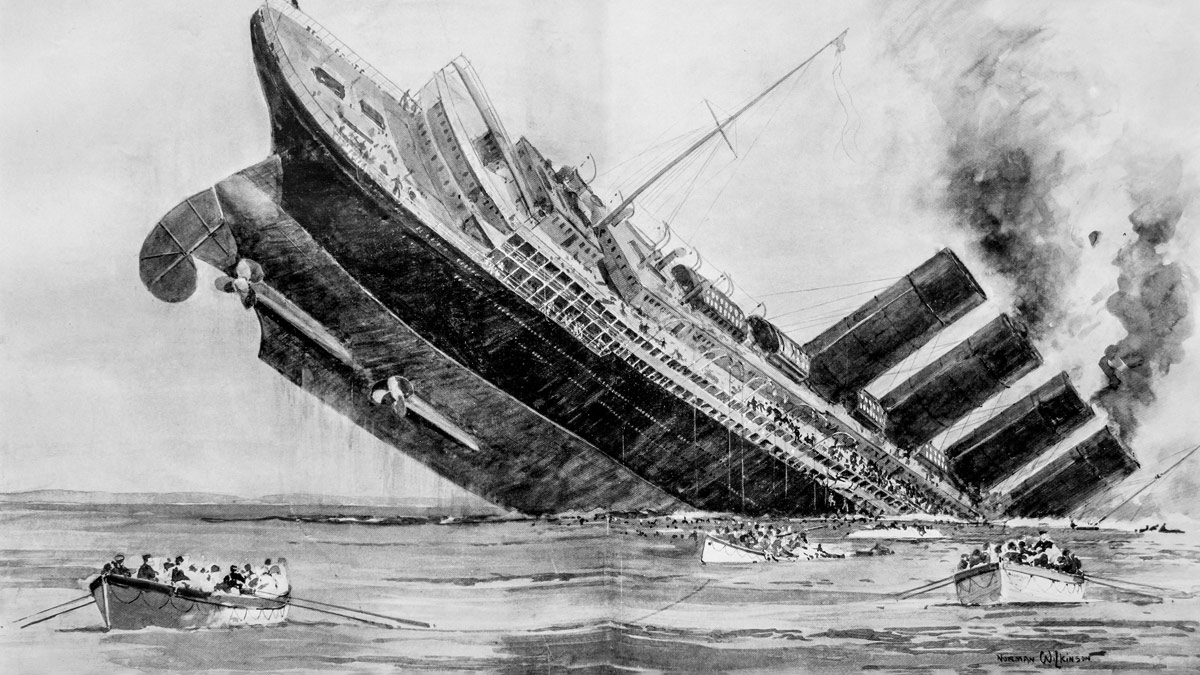
Sir Winston Churchill, the hero of the Second World War, had already distinguished himself during the first world conflict. At the time he was Minister for Armaments, responsible for the supply of munitions by sea. At the beginning of the conflict, the two sides were fighting each other on land and at sea. France, the United Kingdom and Russia were engaged in a deadly battle against Germany, Austria-Hungary and the Ottoman Empire. In European capitals, there was speculation that the Americans would enter the war with their European allies. America had become the world’s leading power and its support would make the allies happy. The United States, however, chose to remain neutral in the conflict even though it was secretly supplying arms to England. The Germans, on the other hand, launched the first and mythical U-Boats that would wreak such havoc during the two wars. In Berlin, Kaiser Wilhelm II knew that the neutrality of the Americans would not last forever and wanted to get rid of the British as soon as possible to avoid a military alliance between the two countries. The U-boats thus avoided offending the United States by concentrating their fire on the British ships.
In London, the intentions were not the same. It was known that the entry of the United States into the war was essential to get out of the first trenches that were beginning to be dug on the continent. The Lusitania, which continued to carry passengers across the Atlantic, was to be used as a pretext to engage America. And a well-known man was to play a decisive role even then. He was Winston Churchill. In the 1910s, he was Minister of Armaments and was responsible for the supply of munitions by sea. In his memoirs on the Second World War, he evoked a parallel between the Japanese attack on Pearl Harbor and a remark made to him 30 years earlier by the British Foreign Secretary Edward Grey: “The United States is like a gigantic kettle. Once the fire is lit under it, there is no limit to the power it can generate”. In his book “Dead Wake”, the New York Times journalist refers to Churchill’s role in the German torpedoing of the Lusitania, not through his action but through his inaction.

As soon as it left New York on 1 May 1915, the Lusitania seemed destined for a fatal fate. To save coal, most of her boilers were inactive, and this fast liner, capable of sinking submarines, became a slow ship with no protection except that of the British Navy. “Suppose they sank the Lusitania with Americans on board,” British King George V asked the US President’s special adviser. “A fire of indignation would then sweep across America and probably drag us into war,” replied his interlocutor.
On 7 May 1915, U-Boat 20 encountered the Lusitania off the coast of Ireland. She had only one torpedo left and it hit the liner. The British Navy never intervened or even informed the captain of the danger. The British turned a blind eye. At the heart of the ship, the ammunition caught fire, causing a second, much larger explosion, to the surprise of the Germans. It was this explosion that sank the ship and its 1198 passengers. The attackers claimed to be respecting the laws of war since weapons were secretly being transported on board. The United Kingdom denied this and it was not until the archives were opened in 1972 that the Germans confirmed that they were in the right.
But the powder keg spread as far as the United States, where the death of the 128 nationals was to create an electroshock. The Germans tried everything to avoid the American intervention: the commander of the U-Boat was sanctioned and the submarine war was interrupted in August 1915. This respite allowed arms to flow easily across the Atlantic, while European immigrants in the United States were now calling for intervention. By January 1917, the war was dragging on and Germany had no choice but to stop the constant voyages. The order was given to sink all ships. In April 1917, US President Woodrow Wilson declared war on Germany. On the walls of American cities, the call for mobilisation was accompanied by a large scarlet headline: “Remember the Lusitania!”

